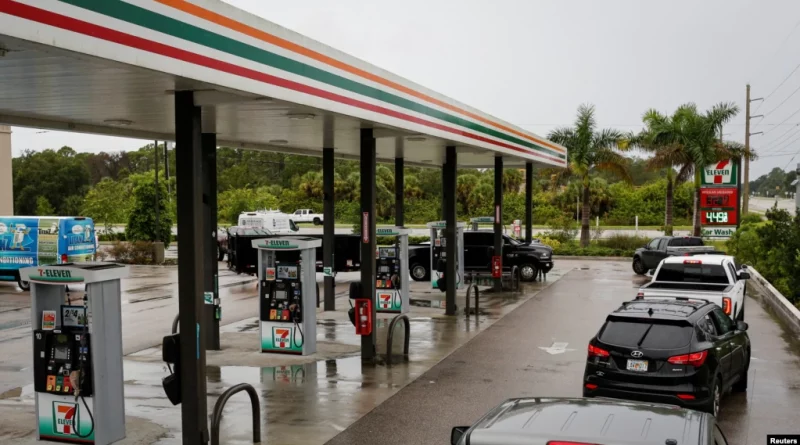In the White House concerned about rising gasoline prices
In the White House concerned about rising gasoline prices
White House officials met Friday with oil company executives to discuss the aftermath of Hurricane Ian and the decline in gasoline inventories, while President Joe Biden addressed the industry demanding that it not inflate prices for consumers.
The White House requested a meeting with representatives from eight oil companies, including Exxon Mobil, Chevron and Marathon Petroleum, late Thursday night, the sources said.
Retail gasoline prices rose sharply after a series of unplanned shutdowns at refineries and planned repairs at other refineries cut supplies.
According to the Association of American Motorists, the average retail price of gasoline in the United States is now $3.79 a gallon, up 11 cents from a week ago, though overall prices remain lower than a month ago.
Biden warned oil companies not to use the hurricane as an excuse to raise gasoline prices, which rose sharply earlier this year after Russia invaded Ukraine.
“This small temporary impact of the hurricane on oil production is not an excuse to raise gas station prices, by any means,” he said.
Hurricane Ian brought devastation to Florida on Thursday, hitting South Carolina on Friday, and Hurricane Fiona did heavy damage to Puerto Rico in early September.
National Economic Council Director Brian Deese, Energy Secretary Jennifer Granholm and Amos Hochstein, senior energy adviser at the State Department, were scheduled to attend the meeting.
Prices rose the most in the Midwest and West Coast after a fire at a BP refinery in Ohio and four refineries in California that were either shut down for scheduled work or unexpectedly shut down their equipment.
Refiners and retailers across California are allowed to sell winter fuel immediately, the state air pollution control agency said Friday, in an effort to reduce the nation’s highest fuel prices. The average price of gasoline in California is $6.35 a gallon, compared with the national average of $3.80.
Problems in refining have led to a widening gap between wholesale gasoline futures prices and retail motor fuel prices. The gap is now about $1.3 a gallon, compared to an average of 88 cents over the past five years.
U.S. manufacturers Exxon and Chevron declined to comment on the White House meeting.
Chevron said the concern “will not tolerate illegal price hikes,” reminding its independent distributors to comply with price hike laws enacted in response to Hurricane Ian.
In an appeal to the U.S. Department of Energy this week, Exxon opposed the fuel export cuts from the United States called for in August by the Biden administration, arguing that restricting supplies would further reduce global supply and raise prices at home.
The energy secretary disagreed with Exxon’s arguments.
“A company that took in nearly $200 million daily in the last quarter is misinterpreting the moment we are in,” Jennifer Granholm said in a statement. – It’s time for U.S. energy companies to take action to lower prices for consumers and restore the nation’s gasoline and diesel stocks.”
